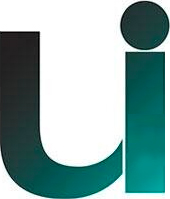The Neuroscience Center at Unity Neurology & Neuroscience is dedicated to the diagnosis, treatment and rehabilitation of neurological disorders.
We provide a complete continuum of neurological care for patients in the outpatient setting, with physicians, nurses, neurological testing and specialized services all at one location. We also help coordinate care with other specialists and community resources as needed to ensure all of the patient's neurological care needs are addressed.
Neurological and Sleep Disorders Consultations
Our board-certified neurologists and sleep specialists provide initial consultations and follow-up care to patients with neurological or sleep disorders. Our team will diagnose the medical problem, implement an appropriate treatment plan and provide patient education based on individual patient needs.
Specialty Disease Clinics
We offer specialty disease clinics for many of the neurological disorders we treat. Most of our physicians have subspecialty training and expertise in their areas of interest that ensures patients are getting the most advanced care possible. Our specialty disease clinics include:
- The Multiple Sclerosis Center
- Fast Track Neurology
- Sleep Medicine
- Spasticity Management Clinic
- Brain Injury Program
- Headache Center
- Movement Disorders Center
Neurodiagnostic Testing Services
Our fellowship-trained, board-certified physicians and certified technologists perform neurodiagnostic testing in our West Akron office for the convenience of patients and referring physicians.
Neurodiagnostic consults by our physicians ensure the most appropriate and effective tests are ordered. Or, the referring physician may directly order tests.
Testing with our state-of-the-art digital equipment is scheduled at the patient's convenience. Timely reports are generated by our staff for the referring physician.
EEG (Electroencephalogram)
An EEG is the recording of electrical activity in the brain; it measures brain waves. It does not "read your mind" or measure intelligence, but it does allow the physician to study a series of small electrical fluctuations produced by the brain.
Routine EEG - To record brain activity, small disks or electrodes are attached to a plastic cap on the patient's head, each ear and one to the chest. The examination is usually completed in one hour.
24-, 48- and 72-Hour Ambulatory EEG - This form of EEG allows the patient to leave the testing facility and continue their daily routine. The patient wears the equipment for either 24, 48 or 72 hours, as ordered by their physician. During the test time, the patient keeps a written diary of activities and symptoms.
Sleep Deprived EEG - The patient is required to be awake from midnight the night before until the time of the test. The patient must fall asleep during the test for it to be valid.
EMG (Electromyogram)
A physician may recommend an EMG to determine if muscles and nerves are functioning properly. Electrodiagnostic medicine (the study of nerves and muscles) assists the physician in analyzing symptoms—numbness, tingling, pain, weakness or muscle cramping—and determining a course of treatment. The patient may experience problems in only one part or throughout the body.
Tests include nerve conduction studies, needle EMG and evoked potentials.
Nerve Conduction Study - Nerve conduction studies reveal how well the body's electrical signals travel to a nerve. Small electrical shocks are applied to a nerve and the nerve’s response is recorded. There may be a quick, mild, tingling feeling.
Needle EMG - During this procedure, a small, thin needle is inserted into several muscles to evaluate muscle response. The physician tests only those muscles necessary to evaluate problems discussed during the prior exam. The patient may experience a small amount of pain. The physician looks at and listens to electrical signals that travel from the needle to the EMG machine. He relies on his medical training and expertise to determine the cause of the problem. New needles are used for each patient and needles are discarded after each test.
Evoked potentials - Evoked potentials are painless procedures that examine nerve pathways through the spinal cord or from the eyes and ears. Nerve responses are recorded over the scalp and other areas of skin as signals are transmitted from small electrical shocks, light pulses or clicks of sound in the ears.
The Infusion Suite
For patients who do not need to be admitted to the hospital to receive infusion therapy, our Infusion Suite is an innovative outpatient medical center that delivers intravenous infusion and therapeutic injection services in a calm, convenient, personal setting.
The Infusion Suite is comfortably equipped with reclining chairs and state-of-the-art infusion pumps and may be used for many purposes including a first dose of a drug or for an extended course of therapy.
Caring, highly-trained nurses staff the Infusion Suite and are able to administer various prescribed injectibles, maintaining close coordination and communication with the physician throughout the course of treatment. Our goal is to make patients comfortable while providing customized treatment.
Advanced Treatment
Multiple Sclerosis (MS) patients receive advanced treatment in the comfort and convenience of our Infusion Suite. Newer MS medications that require intravenous infusion, such at Tysabri and Novantrone, are conveniently administered onsite.
Treatment is also available at the Infusion Suite for those who suffer from headaches and migraines and other neuromuscular disorders.
Additionally, the Infusion Suite is used in conjunction with certain ongoing clinical research trials.
The Infusion Suite is located at our West Akron office on White Pond Drive at I-77.
Neuropsychology
Neuropsychological assessment and testing aids in the diagnosis of a variety of neurological diseases. We measure a patient's cognition, mood and personality along with strengths, weaknesses and functionality. Psychotherapy and counseling also are available to patients with neurological disorders. Services include:
- Neuropsychological assessment and testing
- Psychotherapy and counseling for patients with neurological disorders
- Collaboration of services with neuro rehabilitation
- Physical therapy
- Occupational therapy
- Speech therapy
- Workers compensation cases
- Independent medical examinations
